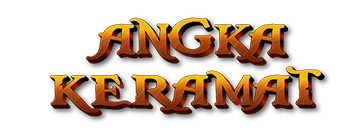Prediksi Keramat Hari ini – Untuk membuat Angka Keramat Togel Singapore Kamis 25 Juli 2024 , kami sudah mencocokan dengan nomor result semalam. Oleh karena itu, mungkin serupa dengan data togel semalam. Tentu banyak yang menggunakan angka keramat togel yang sudah kita rangkum karena berasal dari mbah dukun yang sudah lama menginformasikan prediksi togel setiap hari nya. Sebelum mulai melakukan bettingan silakan isi saldo sobat dengan deposit terlebih dahulu di BO yang terpercaya. Cek langsung bocoran togel yang admin racik berikut ini.
Angka Keramat Togel Singapore Kamis 25 Juli 2024 |
|
|---|---|
| Angka 4D | 5119 |
| Angka 3D | 131 |
| Angka 2D | 22*54*47*79*77*75*35*43*84*70
45*98*53*50*30*46*26*46*24*62 |
| Colok Bebas | 4 |
| Colok Macau | 9 – 3 |
| 50 : 50 | EKOR |
| Besar / Kecil | KECIL |
| Genap / Ganjil | GENAP |
| SHIO | KUDA |
NB : Tetap Utamakan Prediksi Sendiri ya kawan-kawan.
Mencari Bandar Togel Terpercaya Pasti Bayar
Tidak mudah mencari bandar toto online teraman yang pasti membayar semua kemenangan dari Playernya. Oleh karena itu, admin sudah menyiapkan referensi beberapa bandar togel online yang terbukti aman dan terpercaya 100%. Berapapun JP kita pasti akan terbayarkan di sini.
Kalian dapat pilih salah satu agen togel tersebut menggunakan banner yang ada di website prediksi angka keramat ini. Isilah data yang sebenarnya agar tidak terkendala ketika proses isi saldo maupun tarik dana. Admin bisa menjamin setiap kemenangan bettor akan terbayarkan. Apabila ada masalah bisa langsung livechat ke bandar togel bersangkutan atau mau admin bantu juga bisa.
Prediksi keramat Togel China, Prediksi Keramat China hari ini, Angka Keramat Sidney Jitu, Bocoran Keramat Kamboja Pasti Keluar, Prediksi Keramat Shio Cambodia, Angka Keramat Cina Akurat, Prediksi Keramat Togel Cina dijamin JP, Angka Keramat 4D Kamboja hari ini, Prediksi Keramat Terbaru Togel Cambodia.













